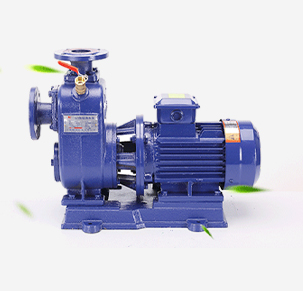English
- Afrikaans
- Albanian
- Amharic
- Arabic
- Armenian
- Azerbaijani
- Basque
- Belarusian
- Bengali
- Bosnian
- Bulgarian
- Catalan
- Cebuano
- Corsican
- Croatian
- Czech
- Danish
- Dutch
- English
- Esperanto
- Estonian
- Finnish
- French
- Frisian
- Galician
- Georgian
- German
- Greek
- Gujarati
- Haitian Creole
- hausa
- hawaiian
- Hebrew
- Hindi
- Miao
- Hungarian
- Icelandic
- igbo
- Indonesian
- irish
- Italian
- Japanese
- Javanese
- Kannada
- kazakh
- Khmer
- Rwandese
- Korean
- Kurdish
- Kyrgyz
- Lao
- Latin
- Latvian
- Lithuanian
- Luxembourgish
- Macedonian
- Malgashi
- Malay
- Malayalam
- Maltese
- Maori
- Marathi
- Mongolian
- Myanmar
- Nepali
- Norwegian
- Norwegian
- Occitan
- Pashto
- Persian
- Polish
- Portuguese
- Punjabi
- Romanian
- Russian
- Samoan
- Scottish Gaelic
- Serbian
- Sesotho
- Shona
- Sindhi
- Sinhala
- Slovak
- Slovenian
- Somali
- Spanish
- Sundanese
- Swahili
- Swedish
- Tagalog
- Tajik
- Tamil
- Tatar
- Telugu
- Thai
- Turkish
- Turkmen
- Ukrainian
- Urdu
- Uighur
- Uzbek
- Vietnamese
- Welsh
- Bantu
- Yiddish
- Yoruba
- Zulu
Telephone: +86 13120555503
Email: frank@cypump.com
Nov . 29, 2024 14:52 Back to list
Exploring Pump Solutions and Engineering Innovations for Slurry Management Systems
Understanding Slurry Pumps and Their Applications
Slurry pumps play a crucial role in various industries where the transportation of abrasive and viscous materials is necessary. These specialized pumps are designed to handle a mixture of liquids and solids, which poses unique challenges compared to standard pumps. This article delves into the concept of slurry pumps, their significance, design considerations, and applications across different sectors.
What is a Slurry Pump?
A slurry pump is a type of centrifugal pump specifically engineered for pumping thick, viscous mixtures known as slurries. These slurries often consist of liquids mixed with a high concentration of solids, such as sand, coal, and ores. Unlike standard pumps, slurry pumps can handle the abrasive nature of these materials, which can cause wear and tear in conventional pump systems.
Slurry pumps are essential in applications where materials must be transported from one location to another, particularly in mining, mineral processing, and wastewater treatment. Their design typically incorporates robust materials that can withstand extreme conditions, including high temperatures and corrosive environments.
Design Considerations
The design of a slurry pump is fundamentally different from that of standard pumps. Key factors that influence the performance and durability of slurry pumps include
1. Material Selection Due to the abrasive nature of slurries, choosing the right material is critical. Common materials include high-chrome iron, rubber, and other alloys that can resist erosion and corrosion.
2. Impeller Design The impeller is a crucial component that helps maintain the flow of slurry. Slurry pumps may have wide, open impellers to accommodate larger solid particles and minimize the risk of clogging.
3. Pump Size The size of the pump should match the volume and density of the slurry being transported. Larger pumps can handle greater volumes but may also require more energy to operate.
4. Head Development Slurry pumps are designed to generate sufficient pressure (or head) to transport slurries over significant distances or elevations. This requires careful engineering to balance flow rate and pressure.
slurry pumps and engineers

5. Maintenance Features Given the abrasive and variable nature of slurries, ease of maintenance is a vital aspect of slurry pump design. Features such as easy access to internal components and replaceable wear parts can prolong the pump's operational life.
Applications of Slurry Pumps
Slurry pumps are prevalent in numerous industries, including
1. Mining and Mineral Processing In the extraction of metals and minerals, slurry pumps transport ore through processes like flotation or leaching. They handle materials such as coal, iron ore, and copper slurries, ensuring efficient transport from mines to processing facilities.
2. Wastewater Treatment In wastewater treatment plants, slurry pumps are used to handle sludge and other mixtures. They play a key role in transporting waste materials for treatment, including solids that separate during the treatment process.
3. Construction In construction, slurry pumps facilitate the movement of heavy mixtures, such as concrete and excavated materials. They help pump slurry backfills and handle concrete mixtures during various construction phases.
4. Agriculture Slurry pumps are also utilized in agriculture for transporting slurry from livestock operations, assisting in the application of fertilizers and managing waste.
5. Chemical Processing Industries involved in chemical processing often use slurry pumps to move corrosive mixtures containing solid particles. Their robust design ensures safe and effective transfer of materials.
Conclusion
Slurry pumps are vital components in many industrial applications, specifically designed to handle the challenges posed by abrasive and viscous materials. Their unique design, which includes the selection of durable materials and specialized configurations, allows them to maintain efficiency and reliability in demanding environments. As industries continue to innovate and expand, the importance of slurry pumps will only increase, ensuring the seamless transport of essential materials in various sectors. Understanding their functionality and applications is crucial for anyone involved in industries that rely on the movement of mixtures.
-
ISG Series Vertical Pipeline Pump - Chi Yuan Pumps Co., LTD.|High Efficiency, Energy Conservation, Low Noise
NewsJul.29,2025
-
ISG Series Vertical Pipeline Pump-Chi Yuan Pumps Co., LTD.|High Efficiency&Energy-Saving
NewsJul.29,2025
-
ISG Series Vertical Pipeline Pump - Chi Yuan Pumps Co., LTD. | High Efficiency, Energy-Saving
NewsJul.29,2025
-
ISG Series Pipeline Pump - Chi Yuan Pumps | High Efficiency, Low Noise
NewsJul.29,2025
-
High-Efficiency Vertical Slurry Pumps for Mining & Industry Solutions
NewsJul.29,2025
-
High-Efficiency Pipeline Pump Solutions for Every Pipeline Pump Station
NewsJul.29,2025










